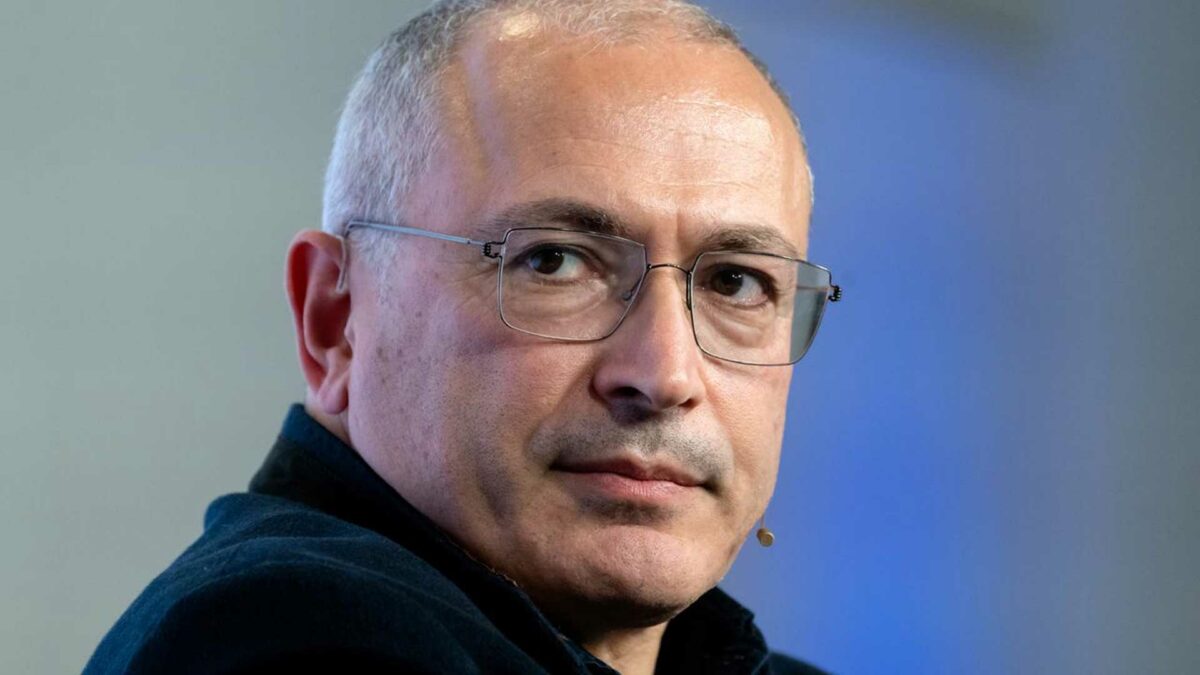Mikhail Khodorkovsky: What he thinks about today’s Russia
Mikhail Khodorkovsky was once imprisoned in Russia, but today he is one of the country’s most influential opposition voices. In an interview with ZDF, he talks about the future of Russia.

“Nobody lives forever, not even Putin”
ZDFheute: Mr. Khodorkovsky, you were a businessman, a political prisoner and now an opposition figure. How would you describe yourself?
Mikhail Khodorkovsky: I don’t really like the term “opposition”, because it doesn’t quite correspond with what we do. I prefer to describe us as the resistance against Putin.
ZDFheute: What does that mean?
Khodorkovsky: “Resistance” means working to ensure that free and fair elections are finally held in Russia, in which different political forces can compete against each other.
Furthermore, the main task of the resistance is to end the war, because without ending the war the other goal cannot be achieved.
ZDFheute: What are your political ambitions?
Khodorkovsky: I don’t like to call myself a politician. A politician is someone who strives to gain a position of power, to be elected to office. I have never strived for that in my life. It is probably too late for me to start now. However, I am an opponent of the Putin regime. I am committed to human rights, because I received help when I was in prison, and I believe that I can give something back today.
ZDFheute: Putin seems to be firmly in the saddle at the moment.
Khodorkovsky: Unfortunately, you are right. When the war started, Putin’s power could have been very seriously undermined if the West had immediately made the decisions it did a few years later. In that scenario, Putin would have lost the war and change would have happened in Russia much more quickly. Now, we have perhaps another five to 10 years to go, but nobody lives forever. Not even Putin, even if he likes to think otherwise.
ZDFheute: In Russian opposition circles, there is a great deal of debate over what a post-Putin Russia should do with those who work in his state apparatus and military. Many are calling for a kind of purge. A complete new start in terms of personnel.
Khodorkovsky: I am a big opponent of generalizing people based on professional indicators, such as saying that all intelligence officers are bad, or that anyone in a military uniform is leading us to a military dictatorship. In my opinion, that is not the case. I know a very large number of people, including members of the intelligence services, who serve and have served their country honestly.
ZDFheute: In your book “How to Kill a Dragon”, you call for a revolution in Russia. How do you imagine that unfolding?
Khodorkovsky: One should not confuse revolution and civil war. I understand revolution as a change that goes beyond the existing boundaries of political life, technology, science.
In Russia, a change of government is no longer possible within theexisting boundaries set by the government. In Russia, there is an authoritarianism that has already turned into a dictatorship. So you will definitely have to cross boundaries. That is what revolution means to me. Whether this revolution will be violent, whether it will involve the threat of violence or whether it will be something much more peaceful depends on the situation.
ZDFheute: There is a dispute within the Russian opposition. You have differences with the team of the deceased opposition leader Alexei Navalny.
Khodorkovsky: We have a fundamental disagreement: when we talk about the future of Russia, Navalny’s team believes that the bad autocrat Putin will be replaced by a good democratic leader who will only do good things. I fundamentally don’t believe that.
I am convinced that the office of the Russian president has too much power. This is always the road to authoritarianism and dictatorship. To change this, it is necessary to form coalitions and rely on the separation of power. This must happen now, before a phase of change begins, and not be left until changes have already been implemented.
ZDFheute: The liberal opposition often says that the war in Ukraine is Putin’s war. But now it looks as if a large number of Russians support the war.
Khodorkovsky: I think the war was initially just Putin’s war and that of his inner circle. Three years later, the situation has changed dramatically. Today there are many in Russia who support continuing the war until victory. I don’t know if these people are in the majority. At the same time, I also think that the majority would prefer this war to end.
ZDFheute: Should Russia give up the annexed Ukrainian territories?
Khodorkovsky: The answer is very simple. Russian liberals can come to power in Russia only if Russian society agrees that it is necessary to restore relations with the West. And relations with the West can be fully restored only after these territorial problems are resolved.
The interview was conducted by Sebastian Ehm, correspondent for Russia, the Caucasus and Central Asia and it was originally published in German in ZDFheute



